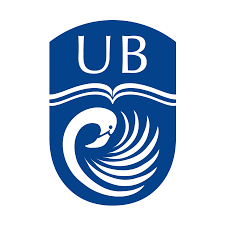Applying Task-based Language Teaching in Introductory Level Mandarin Language Classes at The College of The Bahamas
DOI:
https://doi.org/10.15362/ijbs.v22i0.253Keywords:
Task-based Language Teaching (TBLT), Chinese as a Second Language, , Chinese language - Study and teaching - Foreign speakersAbstract
In foreign-language teaching and learning, there exist a number of methodologies and approaches. The idea and principles of Task-based Language Teaching (TBLT) and the task-based framework in language teaching and learning have proven to be effective in classrooms. The three pedagogic goals for task-based approaches—communication, restructuring and fluency—are also the goals of Mandarin learners. This paper explains, using examples, that the Task-based Language Teaching applied in introductory level Mandarin classes at the College of the Bahamas is helpful and that enthusiastic Bahamian learners can improve their Mandarin skills by completing various activities and tasks within the task-based framework. Observations and results obtained through using this strategy have shown that TBLT is effective in classroom Mandarin teaching and learning for Bahamian college students and adult learners, though some issues exist, which warrant further discussion.References
Batstone, R. (2012) Language form, task-based language teaching, and the classroom context. ELT Journal, 66(4), 459-467. https://doi.org/10.1093/elt/ccs058
Cook, V. (2010). Linguistic relativity and language teaching. In V. Cook & A. Bassetti (Eds.), Language and bilingual cognition (pp. 509–518). Psychology Press.
Ellis, R. (2003). Task-based language learning and teaching. Oxford University Press.
Foster, P., & Skehan, P. (1999). The influence of source of planning and focus of planning on task-based performance. Language Teaching Research, 3(3), 215–247. https://doi.org/10.1177/136216889900300303
Jiang, L. (2014). Standard course HSK I & II. Beijing Language and Cultural University Press.
Johnson, K. (2001). An introduction to foreign language teaching and learning. Longman.
Liu, X. (2010). New practical Chinese reader I & II. (2nd Ed.). Beijing Language and Cultural University Press.
Long, M., & Crookes, G. (1991). Three approaches to task-based syllabus design. TESOL Quarterly, 26, 27-55. https://doi.org/10.2307/3587368
Long, M., & Crookes, G. (1993). Units of analysis in syllabus design: the case for task. In G. Crookes & S. Gass (Eds.), Tasks in pedagogic context: Integrating theory and practice (pp. 9-54). Multilingual Matters.
Nunan, D. (1989). Designing tasks for the communicative classroom. Cambridge University Press.
Nunan, D. (1993). Task-based syllabus design: Selecting, grading and sequencing tasks. In G. Crookes & S. Gass (Eds.), Tasks in a pedagogical context: Integrating theory and practice (pp. 55–68). Multilingual Matters.
Nunan, D. (2004). Task-based language teaching. Cambridge University Press.
Robinson, P. (2001). Task complexity, cognitive resources, and syllabus design: A triadic framework for investigating task influences on SLA. In P. Robinson (Ed.), Cognition and second language instruction (pp. 287–318). Cambridge University Press.
Robinson, P. (2007). Criteria for classifying and sequencing pedagogic tasks. In M. P. Garcia Mayo (Ed.), Investigating tasks in formal language learning (pp. 7–27). Multilingual Matters.
Ruan, Y., Duan, X., & Du, X. Y. (2015). Using tasks to enhance beginners’ orientations for learning Chinese as a foreign language. International Journal of Research Studies in Language Learning, 4(4), 41-55. https://doi.org/10.5861/ijrsll.2015.1044.
Samuda, V., & Bygate, M. (2008). Tasks in second language learning. Palgrave Macmillan.
Skehan, P. (1996). A framework for the implementation of task-based instruction. Applied Linguistics, 17(1), 38-62. https://doi.org/10.1093/applin/17.1.38
Skehan, P., & Foster, P. (1999).The influence of task structure and processing conditions on narrative retellings. Language Learning, 49, 93-120. https://doi.org/10.1111/1467-9922.00071
Storch, N. (2002). Patterns of interaction in ESL pair work. Language Learning, 52, 119–158. https://doi.org/10.1111/1467-9922.00179
Willis, J. (1996). A flexible framework for task-based learning. In D. Willis & J. Willis (Eds.), Challenge and change in language teaching (pp. 52-62). Heinemann.
Willis, D., & Willis, J. (2001). Task based language learning. In R. Carter and D. Nunan (Eds.), The Cambridge guide to teaching English to speakers of other languages (pp. 173-179). Cambridge University Press.







